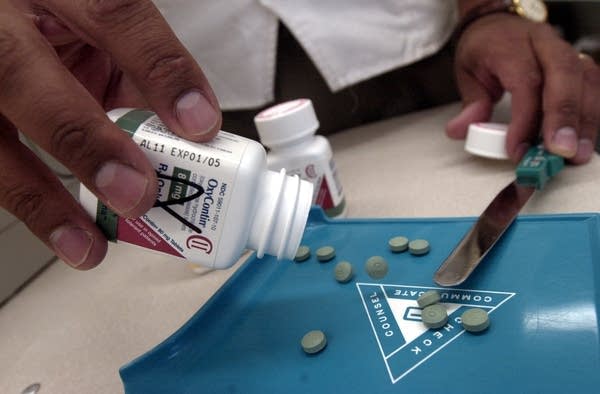Hospitals advised to increase safeguards over drug supplies
Go Deeper.
Create an account or log in to save stories.
Like this?
Thanks for liking this story! We have added it to a list of your favorite stories.

Following a spate of prescription drug thefts by medical staff, a coalition of law enforcement and medical groups are recommending increased safeguards over prescription drug supplies at hospitals.
The report issued Wednesday charts a steep increase in reported prescription drug theft or loss from Minnesota medical facilities. In 2006, hospitals reported 16 incidents. By 2010, that number had risen to 52. Most of those thefts or losses included prescription opiates, which are widely abused in Minnesota.
Minnesota Department of Health Commissioner Edward Ehlinger said the coalition was formed last year after an investigation at a St. Cloud hospital found that a nurse stealing drugs from IV bags had inadvertently caused infections in 23 patients.
"Given the fact that prescription drug abuse was going on in the general community, it might be the same in hospital and health care settings," Ehlinger said. "We called the hospital association and said, 'Even though this seems like a single incident, let's look at it more systematically to see if this is a real public health problem.'"
Turn Up Your Support
MPR News helps you turn down the noise and build shared understanding. Turn up your support for this public resource and keep trusted journalism accessible to all.
The coalition's goal is to better enable medical professionals to prevent prescription drug "diversions," Minnesota Hospital Association President Lawrence Massa said.
"We want to create awareness that pharmaceuticals are a fast growing part of the drug abuse problem in our country," Massa said. "As health care professionals who have access to controlled substances, particularly narcotics, we want our member organizations to be very aware of what the issues are [and] understand what best practices are available to prevent diversion."
The coalition released 100 recommendations for how hospitals can prevent diversion of prescription drugs.
"They range from things like having security cameras, which are, I think, pretty standard and obvious, but also very sophisticated methods of counting and looking at your inventories and making sure you're doing adequate surveillance," Massa said.
The report also recommends that patients be encouraged to take a more active role in their care by speaking out if they think their prescription drugs are being diverted.
The organizations involved in the coalition are now training their members and reaching out to the public, said MDH Assistant Commissioner Ellen Benavides.
"What's particularly interesting is that there's the joint training between both the law enforcement and the healthcare community to do it together, so there's a consistent message being delivered, Benavides said. "This is serious business and we really want to raise the level of public awareness."




